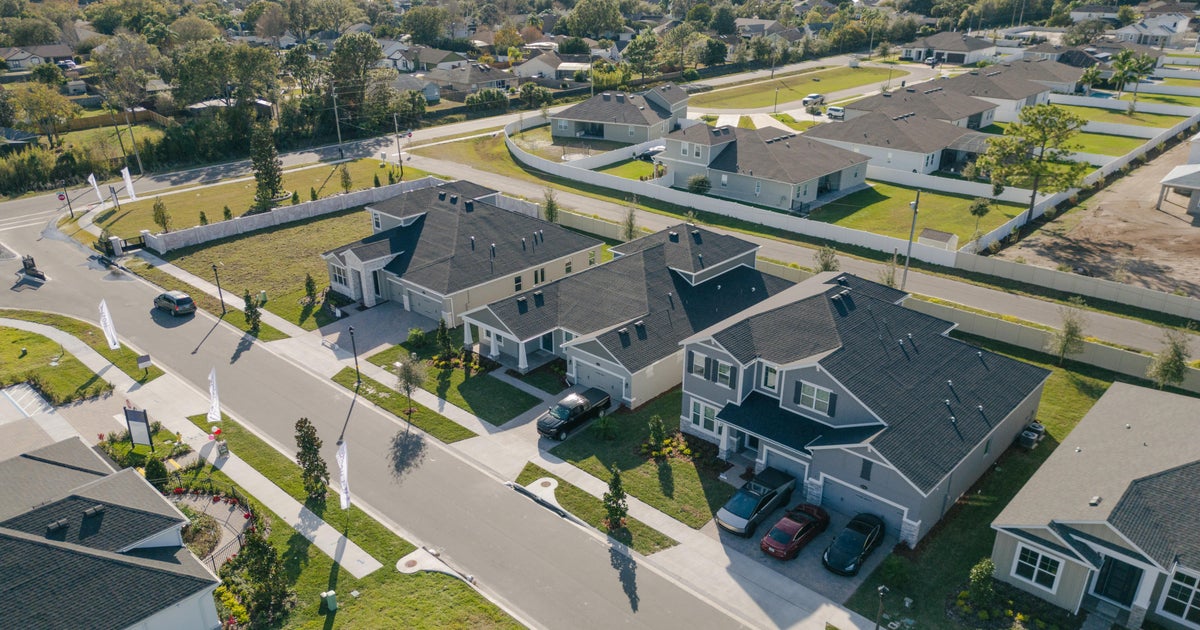Gov. Ron DeSantis late Wednesday dismissed a series of proposed constitutional amendments released last week by the Florida House to cut property taxes.
DeSantis, who has made a top priority of asking voters in the 2026 elections to slash property taxes for homeowners, said in an online post that the House approach was a “political game.” The House proposed seven measures for the ballot.
“Placing more than one property tax measure on the ballot represents an attempt to kill anything on property taxes,” DeSantis said on X. “It’s a political game, not a serious attempt to get it done for the people.”
DeSantis’ comment came in response to a post by Maria Peiro, who called the House proposals “half measures” and “confusing.”
Peiro unsuccessfully ran for the Republican nomination for a South Florida congressional seat in 2016 and 2018.
Despite making appearances across the state, DeSantis had not previously responded to the House proposals, which were released Oct. 16.
In a memorandum to House members last week, House Speaker Daniel Perez, R-Miami, touted the idea of offering multiple proposals.
“If we have faith in the voters to elect us, we should not be afraid to let them be a part of the conversation about the taxes they pay,” Perez, R-Miami, wrote. “It is our position that the House does not need to limit itself in presenting one single plan, but instead allow the people of Florida the ability to choose some, all, or none of the proposals on the 2026 ballot.”
DeSantis and Perez have clashed repeatedly during the past year, including on tax issues. Making major property-tax changes would require lawmakers passing a proposed constitutional amendment — or multiple proposed amendments — and then getting voter approval.
Perez formed a select committee in the spring to look at property-tax issues. The Senate has not released proposals. The 2026 legislative session will start Jan. 13.
The issue is being closely watched by cities and counties, which rely heavily on property taxes to pay for services and say they could need other sources of money to make up for tax cuts.
Among the House proposals, Rep. Kevin Steele, R-Dade City, is sponsoring a measure (HJR 201) that would eliminate non-school homestead taxes. Meanwhile, Rep. Monique Miller, R-Palm Bay, is sponsoring a proposal (HJR 203) that would phase out non-school homestead property taxes over 10 years. Under Miller’s proposal, the homestead tax exemption would increase by $100,000 annually.
Currently, homeowners can qualify for a homestead exemption from local government and school district taxes on the first $25,000 of the taxable values of their properties and from local government taxes on the values between $50,000 and $75,000.
Another proposal (HJR 205), sponsored by Rep. Juan Carlos Porras, R-Miami, would exempt people ages 65 and older from paying non-school taxes on their homes.
The House proposals would shield funding for schools and include sections aimed at preventing reductions in law enforcement funding.
Other House proposals include:
- Rep. Shane Abbott, R-DeFuniak Springs, is sponsoring a proposal (HJR 207) that would create a new non-school homestead exemption equal to 25 percent of the assessed value of homes after other exemptions are applied. Perez’s memo said the proposal, in part, could help first-time homebuyers.
- Rep. Demi Busatta, R-Coral Gables, is sponsoring a proposal (HJR 209) that would create an additional $100,000 homestead exemption for people with property insurance.
- Rep. Toby Overdorf, a Palm City Republican who has co-chaired the House select committee, is sponsoring a proposal (HJR 211) that would allow people to transfer the full value of accumulated “Save Our Homes” benefits to new homes. That would add to what is known as “portability” of Save Our Homes benefits. The Save Our Homes law limits annual increases in the assessed value of homesteaded properties to 3 percent or the Consumer Price Index, whichever is lower.
- Rep. Griff Griffitts, R-Panama City Beach, is sponsoring a proposal (HJR 213) that would change the Save Our Homes caps. It would limit increases in taxable values for homestead property to 3 percent over three years. The limit is currently 3 percent a year. Also, increases in the assessed values of non-homesteaded property would be limited to 15 percent over three years, rather than the current 10 percent a year.
- Rep. Jon Albert, R-Frostproof, is sponsoring a proposal (HB 215) that would require two-thirds votes by local governments to increase tax rates. The bill, which would not require voter approval, would also allow newly married couples to combine accumulated Save Our Homes benefits.



